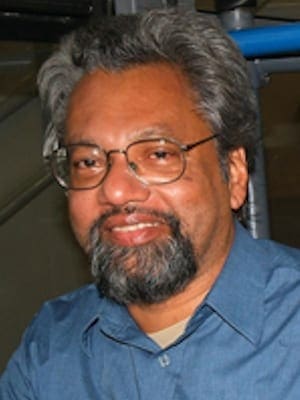I found myself last week in the unusual position of defending in public the United States government.
The latter was the prime mover behind a resolution by the U.N. Human Rights Council (UNHRC) calling on the Sri Lankan government to improve its human rights record and launch a credible investigation into war crimes.
Some members of the ruling regime and their acolytes have been vilifying the resolution, which was carried by a majority of nine votes in the Council, with China predictably defending us against “interference” in a nation’s “internal affairs”.
(How China and even Malaysia, Saudi Arabia and Cuba can occupy seats on the UNHRC is another of those contradictions that makes the U.N. such an ineffective agency today.)
The behavior of the Sri Lankan regime before, during and after the U.N. resolution was carried only illustrates the necessity for such a resolution.
Such was the main substance of a newspaper article of mine that was carried by two leading English-language dailies. (No Sinhala – the majority language – newspaper will carry it.)
We have been treated to the pitiful spectacle of a foreign minister wasting huge amounts of public funds in desperate last-minute trips to Africa and Latin America to canvass support; and the continued use of the state media to whip up frenzy against local and foreign critics, instead of explaining to the populace the content of the UN Resolution; and the manipulation of schoolchildren as well as religious leaders, among others, who were bused into the capital by the ruling party to stage noisy protests outside the American and Indian embassies.
Local human rights activists who went to Geneva to support the resolution have been threatened.
At the same time as we counter state terror, we expose the hypocrisies of those well-to-do Sri Lankan Tamils in Western lands who rejoice over the U.N. resolution but who don’t call for the arrest of those within their ranks who continued to pay for arms shipments to the Tamil Tigers when the latter were using civilians as human shields and forcibly conscripting child-soldiers during the dark days of the war.
So-called “diaspora” Tamils in the U.S., like many of their Indian and Pakistani counterparts, carry American passports and very few of them will return to live in Sri Lanka, even if we had a just peace.
You will not find any among them joining George Clooney to protest outside the Sudanese embassy in Washington, D.C., or challenging the U.S. government to bring all those Americans responsible for torture and war crimes abroad to face trial.
What brings “human rights” language into disrepute is the use of it against our enemies, and not our own ethnic group and nation-state.
I don’t find these articles, letters and blog posts easy to write. I can handle the hate-mail; it is silence that depresses me.
Even on this blog, whenever I write on some traditional “mission” or “apologetics” topic, the comments flow thick and fast.
However, mention the state of U.S. politics and a deafening silence sets in. Try appealing to U.S. Christians to write to their national newspapers or do what George Clooney or the Occupy Movement are doing – getting out there and protesting, for instance, the inhumanity of Iranian sanctions (a violation of international law, given that no evidence has been put forward to show that Iran has breached the nuclear nonproliferation treaty), and you will find the shutters rapidly coming down.
In the current New York Review of Books, Michael Ignatieff superbly sums up what I have been trying to say in recent posts about the U.S. and global politics: “Since Franklin Roosevelt’s leadership in setting up the United Nations and the Nuremberg trials, the U.S. has promoted universal legal norms and the institutions to enforce them, while seeking by hook or by crook to exempt American citizens, especially soldiers, from their actual application. From Nuremberg onward, no country has invested more in the development of international jurisdiction for atrocity crimes and no country has worked harder to make sure that the law it seeks for others does not apply to itself.”
Most Christian pastors are unprepared by their seminaries to think globally about local issues, which is surely what employing a Christian mind entails.
To those who say, even before they try anything, that they are “powerless” to effect change, there are many stories one can tell of how little actions of faithfulness by ordinary people have led to social and political transformations on an unimaginable scale. Every community has such memories.
However, I prefer to recall this medieval fiction from the pen of the great Jewish writer, Elie Wiesel, tireless campaigner against crimes against humanity and himself a survivor of Auschwitz. It probably explains why I cannot keep silent.
“One of the Just Men came to Sodom, determined to save its inhabitants from sin and punishment. Night and day he walked the streets and markets protesting against greed and theft, falsehood and indifference. In the beginning, people listened and smiled amicably. Then they stopped listening; he no longer even amused them. The killers went on killing, the wise kept silent, as if there were no Just Man in their midst.
One day a child, moved by compassion for the unfortunate teacher, approached him with these words. ‘Poor stranger, you shout, you scream, don’t you see that it’s hopeless?’
‘Yes, I see,’ answered the Just Man.
‘Then why do you go on?’
‘I’ll tell you why. In the beginning I thought I could change man. Today, I know I cannot. If I still shout today, if I still scream, it is to prevent man from ultimately changing me.'” (From One Generation After)
VinothRamachandra is secretary for dialogue and social engagement for the International Fellowship of Evangelical Students. He lives in Sri Lanka. A version of this column first appeared on his blog.
Secretary for dialogue and social engagement for the International Fellowship of Evangelical Students. He lives in Sri Lanka.

